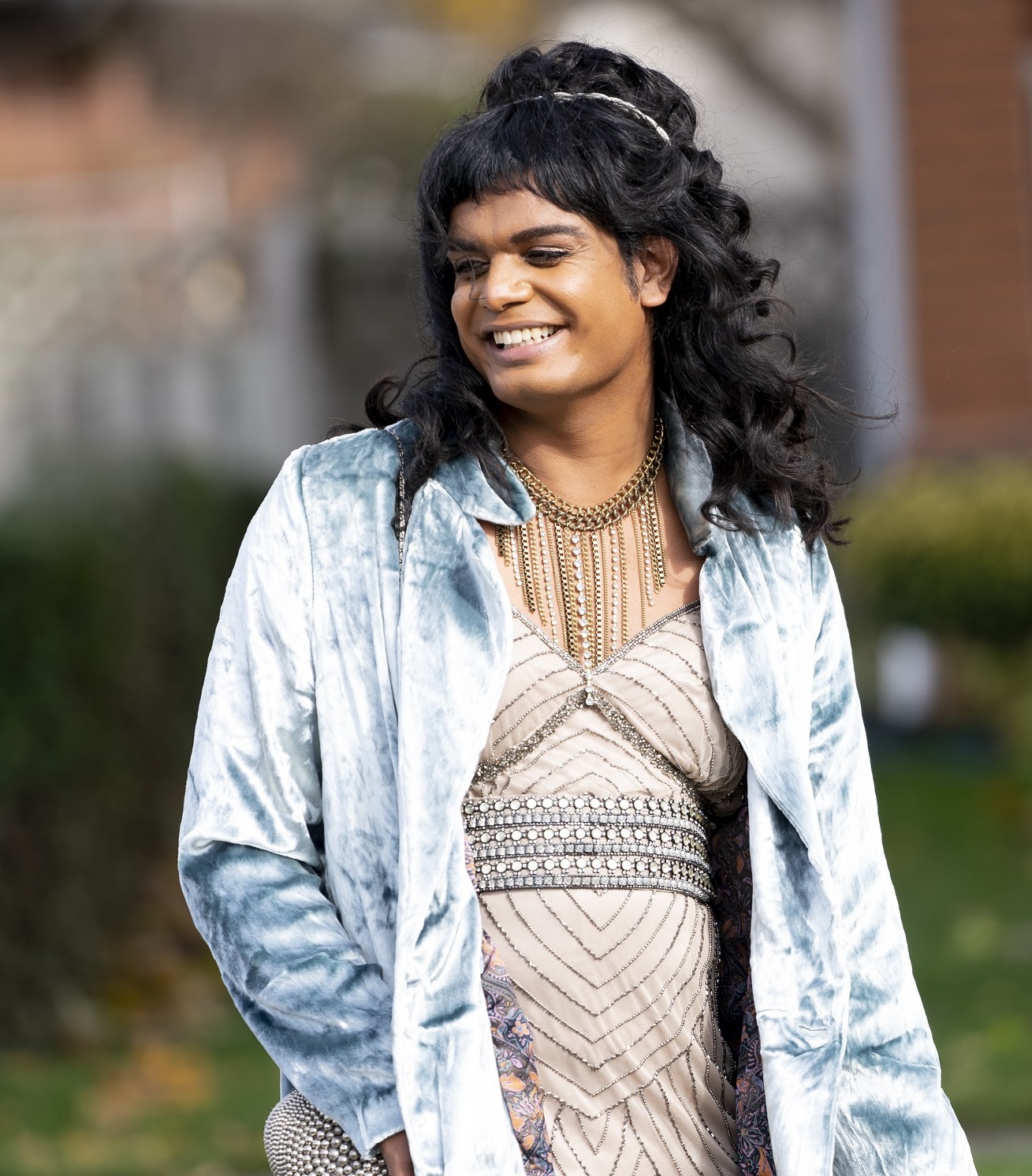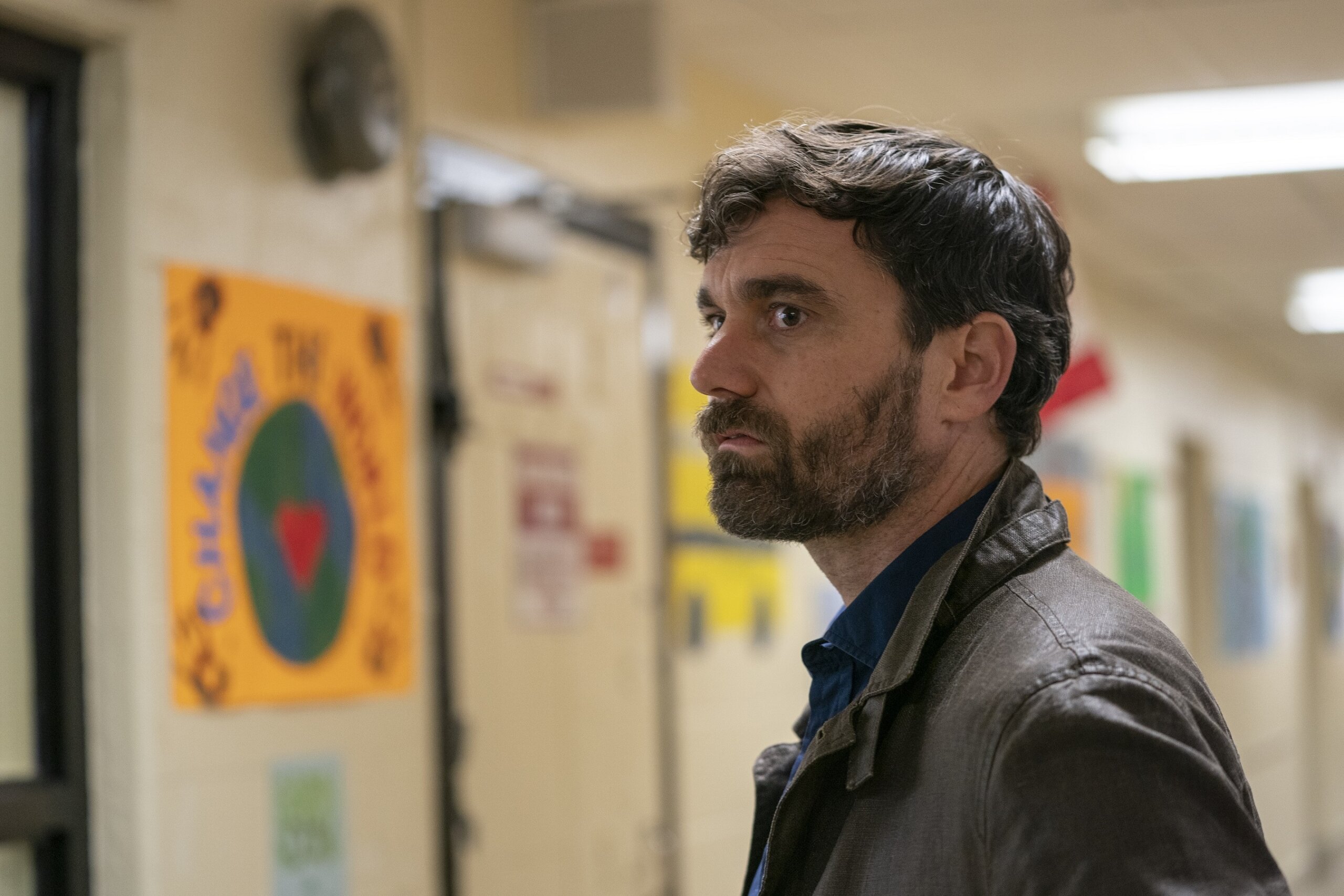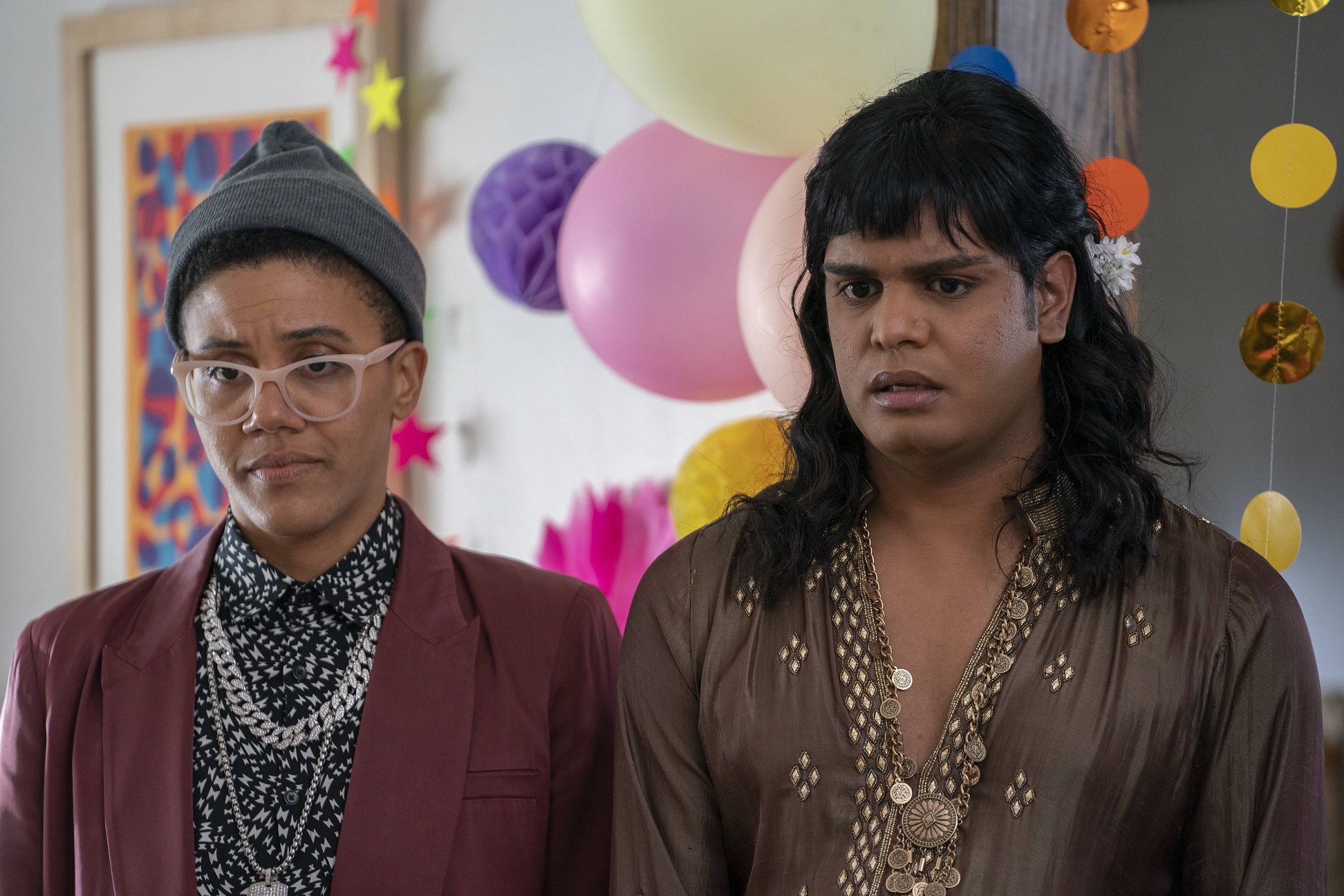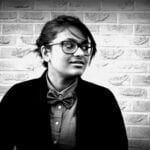My introduction to Bilal Baig’s work was through their play Acha Bacha (at Toronto’s Theatre Passe Muraille, in collaboration with Buddies in Bad Times Theatre) in 2018. The dilemmas of the lead character were similar to the dilemmas I was facing coming out in my thirties. Baig’s work was unapologetically queer and brown. They did not feel the need to sanitize their work for a non-POC, non-queer audience, and as I sat in the theatre surrounded by others, I felt as if Baig had written the play just for me.
Over the years, I came to know them as the warm, kind mentor they are, and found their work as an inspiration to be as fearless in my own work. Their trajectory of writing evolved, too, in the way their queer, genderqueer, gender-fluid or trans protagonists (that they’ve either written or played) went from the confused and lost Zaya in Acha Bacha to the playful young trans woman in Kitne Saare Laloo Yahan Pey Hain, which ran at Toronto’s Factory Theatre in 2020, to the endearing Sabi on the new series Sort Of. A CBC original, the show has already been picked up by HBO Max, where it will reach international audiences.
In Sort Of, which Baig also co-wrote and co-produced with collaborator Fabrizio Filippo, the character Sabi ends up introducing the most iconic dialogue from South Asian millennial and post-millennial childhoods, taking the phrase “Jee le aapni zindagi” (“Live your life in your way”) and turning it into a defence: “I am jee-ing my zindagi!” Like all of their work, the takeaway from Sort Of’s first season is that you don’t have to be queer to want to live your life the way you see fit.
Xtra interviewed Baig about the show, their process and their life.

Credit: Keri Anderson
What was your inspiration for Sort Of?
Fab Filippo [who created the CBC show Save Me] and I were trading life stories. Fab talked about experiencing a transition in his life in his 40s as a cis male, which led us to start to talk about the show. All the characters are in some sort of transition—all human beings are constantly moving through some sort of transition. And so we can start to move away from this idea that transition is only applied before considering a medical or surgical-like operation, and that it is actually something we all collectively experience together. And then in the swapping of life stories: for a year in my life, I was a nanny. We were always interested in taking stories from ourselves and then twisting them and adding comedy, or adding another layer of truth that would then kind of complicate circumstances and character arcs.
The coolest, most beautiful proposal was that a character like Sabi can be at the centre of a TV show—not the one-off who’s going to die in two episodes, but somebody whose journey you’re watching, and their journey is not limited to, “Oh, I don’t like my body. When will I change it?” You’re watching a person just trying to get their shit together and help all the people that are in their life who they love so much.
How were you inspired to write this gender-fluid, brown, Muslim character, Sabi?
One of the things that really turned me on about developing Sabi was they’re somebody who’s a little bit on the quieter side of life, not coming out with a force. I think there’s a really delicious, dry kind of analysis of the world that they’re currently living in. But I think it’s about their energy and aura, too, and that it’s not your typical representation. I just love playing somebody who, if they didn’t want to say something, if they didn’t want to talk, they didn’t.
Did you write the script with the idea that this is going to be on television?
Fab reached out and asked, “Do you want to create a TV project together?” He has way more experience in working in television and making television shows. While I think I’m committed to theatre for the rest of my life, it does not reach the same amount of people as television does. So, there was a curiosity. There was also a fear because of the exposure and visibility. Oh yes, we always knew it was a TV project, we always knew it was going to be a series.
“As I stepped into my adulthood and started to embrace all these other things, I just built on top of Muslim-ness.”
It was through working with producers from Sienna Films—they encouraged us, after hearing just a little bit about what we thought the story was, to create a four-minute sizzle, a teaser, rather than putting our time into a pilot script, as the tone is sometimes hard to pin down in comedies and drama. We sent that off to CBC and they very enthusiastically asked us to come in and meet with them. I’ve been told multiple times by all the TV people who have way more experience than I do that that’s a very rare experience for a show that does not already have an epic celebrity attached.
I know you have collaborated in the past for theatre. How was it collaborating for television?
I don’t know where the foresight came from, but it was to ask Fab: “Where are your vulnerabilities?” I think, having worked with enough white folks and being harmed by them, I really wanted for both of us to come to the table equally in terms of sharing our hearts. If I’m the one pouring everything out and somebody else gets to make a lot of money off of it, that’s really not going to make me feel good. Early on, before we even wrote a single word together, that question was offered to him. The answer that he provided was really satisfying to me. It was this dance of listening to each other, letting each other lead when we knew that person needed to lead. Again, this is going to be like fairy-tale land, but we never argued with each other. Part of it is that I just don’t work that way. There was just a softer way that Fab and I approached working with each other. Of course, there were stresses and bumps along the road. I think it’s just about energy and alchemy and whatever else. It’s a fair question when you’re starting to embark on a deep collaborative process to ask “Where are our hearts?”
Do you want to share a bit of Fab’s answer?
That’s where he really thought about transition as it applies to non-trans people. The story that he told was about how he feels transition is emerging in his life and making some kind of change, how he’s raising his kid. Our relationship to masculinity. I felt that was really beautiful and worth investigating together.
The topic of family in general shows up a lot in your work, especially the mother-child relationship. Can you speak to Sabi’s relationship with their mother, and how important that kind of relationship is to you personally?
I’m obsessed with moms and what it means to be a mom when you have a hard time accessing your child. I think that it’s a really complicated dynamic and worth exploring forever. Not enough of us can relate to what it means to constantly be missing our parents or miss connecting with our parents, and there’s beauty and humour in that. I am obsessed with my mother and I want to capture all the facets of her humanity in all my work forever, because I think her voice or body or life experience should be honoured.
Another theme that I’ve seen that comes up in your work is the intersection of the Muslim identity and queerness within the Canadian context. I feel your work is always trying to reconcile them. Can you speak to this process of reconciliation?
One thing that I do is I start by saying these characters are Muslim, are trans, are queer, that what they’re contending with is not the friction between Muslim and queer trans-ness; it’s other factors. I think that it presents us as the full people that we are right away. And then, we’ve got other things to deal with. And immediately for me, there’s something that feels very human about that, that doesn’t feel reductive. There’s something about that that induces or engages empathy when we’re looking at somebody whose problems are similar to lots of people versus something that might feel like it’s very specific. I don’t think that’s a bad thing. I think, for me, that’s how I came into the world; like my mother always said, “You will always be Muslim.” Then, as I stepped into my adulthood and started to embrace all these other things, I just built on top of Muslim-ness.

Credit: Courtesy of CBC
Let’s talk about Paul, the show’s upper-middle-class cishet white guy. Apart from Sabi, he is the other main character in the show. His privilege is called out by Sabi, once or twice, pretty explicitly. But at the same time, he keeps getting saved a lot by them. It seems like he can do no wrong, even when he keeps messing up. I thought that was an interesting choice to make considering the show is pretty intersectional. Why is that?
When we keep talking about this show in the public world, it is not my show. It’s mine and Fab’s show. And I never wanted it to be my show. I actually hate being looked at and being talked to a lot. And what I did love was, what does it mean for someone like Fab and myself to work together and create? It’s actually an interesting psychological investigation. And it was important for me that somebody like Paul exists on the show, because Paul is the gateway for men like him to access this show, and therefore, keep watching the show, and therefore, keep watching Sabi, and therefore, keep on being like, “Oh wait, I see some similarities between Sabi and myself”—and therein lies the key to empathy. How can we have more love and more care and more empathy for trans and non-binary people in general? But with Paul, in particular, our obsession this season is that the needle shifts just a little bit for Paul and Sabi’s own separate journeys. For Paul to reckon with that the way he has been existing in the past isn’t going to totally fly for him or his family anymore, and that means that major shifts need to happen. And in my analysis of playing Sabi and the journey that Sabi’s on, it’s about letting people in.
“Sabi is somebody who chooses their battles and is okay with coasting through life.”
The other thing that’s true about Sabi is they don’t see themselves as a warrior, or as an especially defiant, politically charged person. They’re figuring themselves out and confused about a couple of things. And they think they’ve been working with this family, they recognize the kind of political image that it is to present working for a half-white family as a brown, genderqueer, non-binary nanny. Sabi is somebody who really chooses their battles and is okay with kind of coasting through life. And that is what lets Paul off the hook. They’re kind of both intertwined in a bit of a messy relationship that I think will start to really change because they both budge right at the end of season one. And then, where do they go?
I think that makes sense. Your collaboration with Fab seems to be a mirror for writing these characters that each of you is working on or understanding. But I saw chemistry between Sabi and Paul. I don’t know if it was intentional. In one scene, they have a huge fight, and in any other context, with any other character who was a conventional female character, I imagine they would have kissed. But there was no kiss. Is the show setting them up to be in a romantic relationship?
I love that you picked up chemistry. I think I pick that up, too. I see it, and I’ve talked to some other folks who also see it. There’s something interesting, dangerous, uncomfortable about dangling that for audiences. And at the same time, we do feel a responsibility to honour these characters and the communities they represent. Given the juggling of all of that, I can’t say anything finite.
One of the most iconic pieces of dialogue in the show was “I am jee-ing my zindagi” (“I am living my life”). I think it’s very iconic dialogue for any diasporic South Asian who has grown up with Dilwale Dulhania Le Jayenge (1995). And it shows up twice, once when the mother tells Sabi “Jee le aapni zindagi” (“Live your life your way”), and again when Sabi says it to their sister very sassily. Can you explain your relationship to this dialogue and what it means for you?
I’m so glad you’re asking this question because it wasn’t originally written in the script. It was a network note. Episode six was where mom calls with the message. For episode seven, the note was: “We need a refresher as to why Sabi is feeling so bold today.” We ended up tweaking it, but we didn’t have that line in place. I remember being in the basement of the house that we were shooting in, and we were workshopping what Sabi would say. And I think it was something about being in the midst of brown people that I said, “It has to be something like, ‘I am jee-ing my zindagi!’” That’s how we talk with our parents and siblings. As soon as it was said, I saw Ellora [Patnaik, the actor who plays Sabi’s mother] light up and it made sense for other people.
Sort Of debuts on CBC Gem on Oct. 5, on the main network on Nov. 9 and on HBO Max some time this fall.
This interview has been edited for length and clarity.


 Why you can trust Xtra
Why you can trust Xtra


